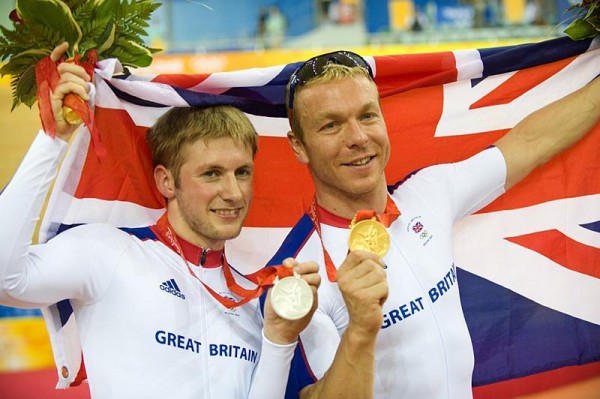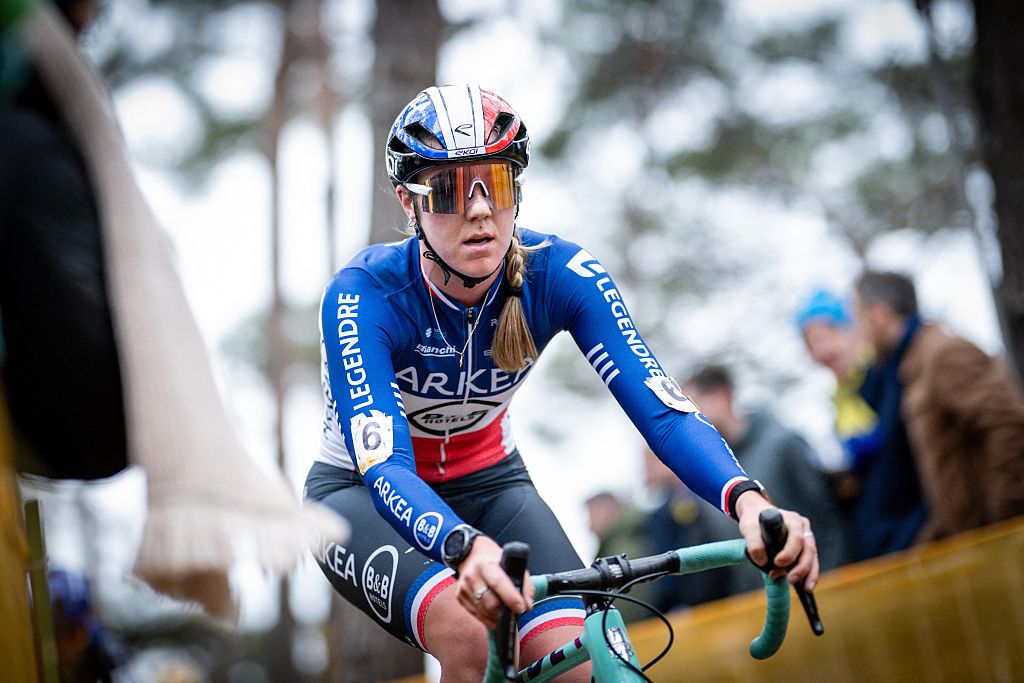
They came as prospectors and went home with the mother lode: seven gold medals, three silver and two bronze later, the British had taken the domination they displayed on their home track to a whole new level at the Beijing Olympic Games. Cyclingnews' Laura Weislo looks back at how Great Britain established its empire in the Laoshan velodrome.
After the world championships in Manchester, it was clear that the track cycling team from Great Britain was on to something. Little did their competitors know that they had only seen the start of what would be near-total domination of the track events by the British in the Olympic Games in Beijing.
By winning each and every non-mass start event and the men's keirin to boot, the Brits showed just what a programme which is well-funded, well-staffed and constantly developing new talent can do. Beginning in 1997, the country began using lottery funds to develop its Olympic sports. This bore fruit quickly in Sydney: Jason Queally took home gold in the kilo, Yvonne McGregor became the first British woman to medal in cycling, and medals in the team sprint (silver) and team pursuit (bronze) signaled the start of the new British empire.
In Athens, the Brits doubled the number of golds, taking top honours in the kilo with Chris Hoy and the individual pursuit with Bradley Wiggins, but was disappointed on several other fronts. Victoria Pendleton failed to make it past the first round in the women's sprint, and the men's team sprinters didn't make the final.
Fast forward to Beijing, and the Brits' years of work developing talent, training and technology along with an 8 million pound budget geared mainly toward success at the 2012 London Summer Olympic games left previously dominant countries such as Australia wondering where they went wrong.
The sprinters: Unbeatable finishes
The British team made a clean sweep of the sprint events, even going one-two in the men's sprint and keirin. In fact, the Brits never lost a single heat in any of the sprint events (except where they went 1-2).
The latest race content, interviews, features, reviews and expert buying guides, direct to your inbox!
It all began and ended with a Scot named Chris Hoy. This muscle-bound fireplug of a man anchored the team sprint to a new (unofficial) world record in the qualifying round, but gave much of the credit to the 20-year-old former BMX-er Jason Kenny whose second lap was one of the fastest ever recorded, and Jamie Staff, who went more than two-tenths of a second faster than the French on the opening lap.
They then went on to obliterate the heavily favoured world champion French team in the final, leading to the understatement of the week by French coach Gerard Quintyn: "It was quickly apparent that they [the British] had made much progress since the World Championships in Manchester."
